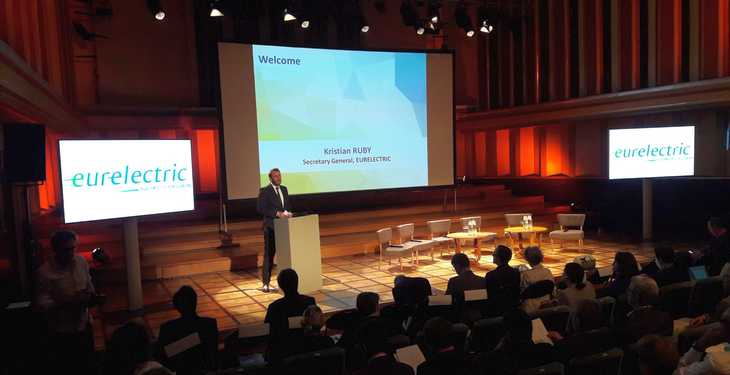A European Commission proposal aimed at capping fossil fuel subsidies across the EU could have perverse effects by promoting investments in new gas-fired power plants instead of renewable energies, according to a new study.
As part of the EU’s plans for an internal electricity market, the European Commission has proposed putting a carbon cap on power plants, which would preclude any facilities emitting more than 550g of CO2 per kilowatt-hour from receiving state subsidies, according to Euractiv.com.
This limit mirrors a similar policy implemented by the European Investment Bank (EIB), which has ceased funding any projects that exceed the 550g threshold.
While the Commission is standing by its ‘EPS 550’ requirement, EU member states are less supportive.
And power utilities are strongly opposed. Eurelectric, a trade group that represents big power generators such as Germany’s E.ON, France’s EDF and Italy’s Enel, has rejected EPS 550 since the Commission first added it to its electricity market proposal without carrying out an impact assessment, which was eventually provided at a later date.
While insisting that they back decarbonisation efforts and the targets of the Paris Agreement on climate change, Eurelectric warned that the Commission plan, if approved, could trigger a wave of investments into gas-fired power generation that will lock Europe in to using fossil fuels for decades to come.
In a new study released on Tuesday (26 September), Eurelectric concluded that the 550g proposalwould not only disqualify coal-fired power stations from subsidies, it will also eliminate so-called gas “peakers” which can be turned on at short notice in response to demand surge.
Most of those indeed fall above the 550g threshold, which is not the case for the more efficient baseload gas power stations.
Eurelectric Secretary-General Kristian Ruby said: “What is overlooked in the proposal is that it could harm assets that are not coal-based. It will, for example, hit the fast ramp-up ramp-down assets that back up renewables when the wind stops blowing.”
By eliminating the least efficient gas power stations from the capacity market, the study claims that utility providers will likely react by investing in new natural gas plants that come in under the 550g limit, instead of carbon-free renewables, because of security of supply concerns.
Overall, this would create a 40% increase in gas consumption for the power sector between 2020 and 2040, the study claims.
The study also warned that the measure would lead to additional power sector expenditure of some €50 billion between 2020 and 2040, mostly in additional abatement costs.
It is the “wrong tool for the right cause”, said one industry source.
Fabien Roques, a senior consultant in the team that produced the study, said there was a legitimate concern about the timeframe of the Commission’s 550g proposal, regardless of people’s personal opinion about coal and renewables.
Speaking at a Eurelectric event on Tuesday (26 September), he warned that according to calculations, 9GW of peaking capacity would have to be installed as of 2025 because of the 550g rule. However that additional capacity would only be needed for five to ten years, he predicted, because the expected fall in battery prices will soon make those additional power stations redundant.
